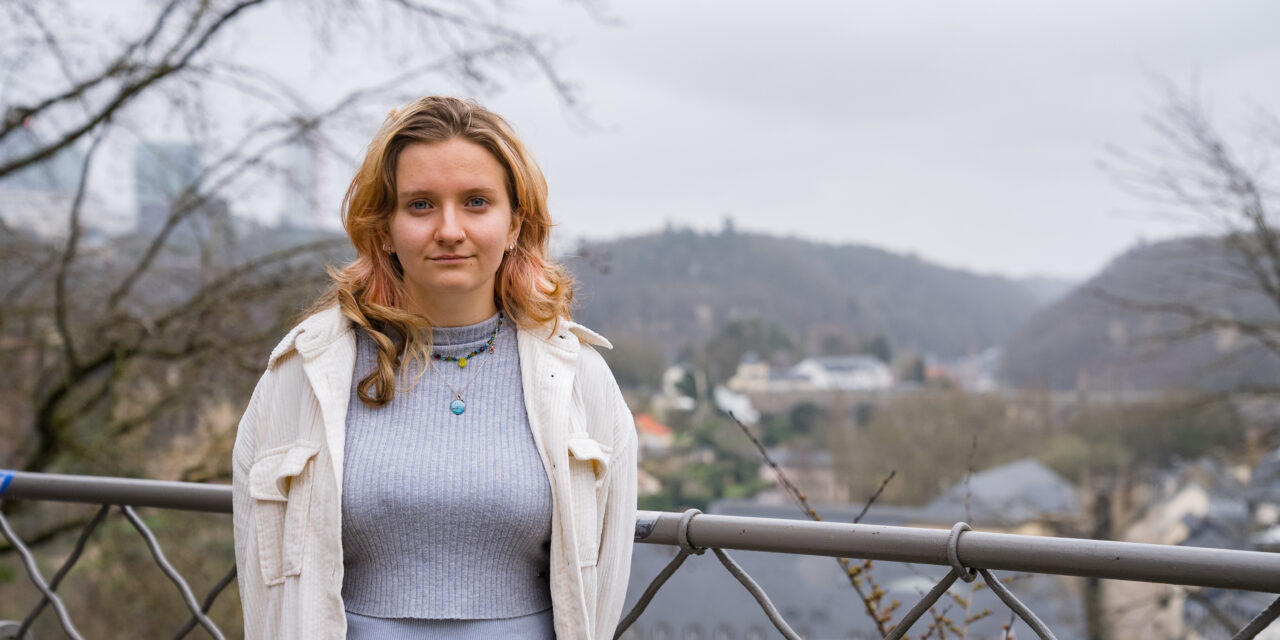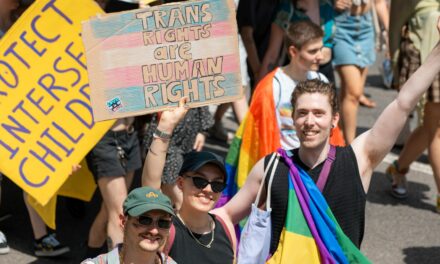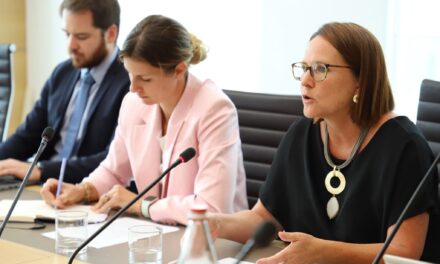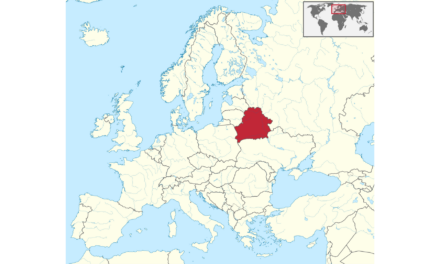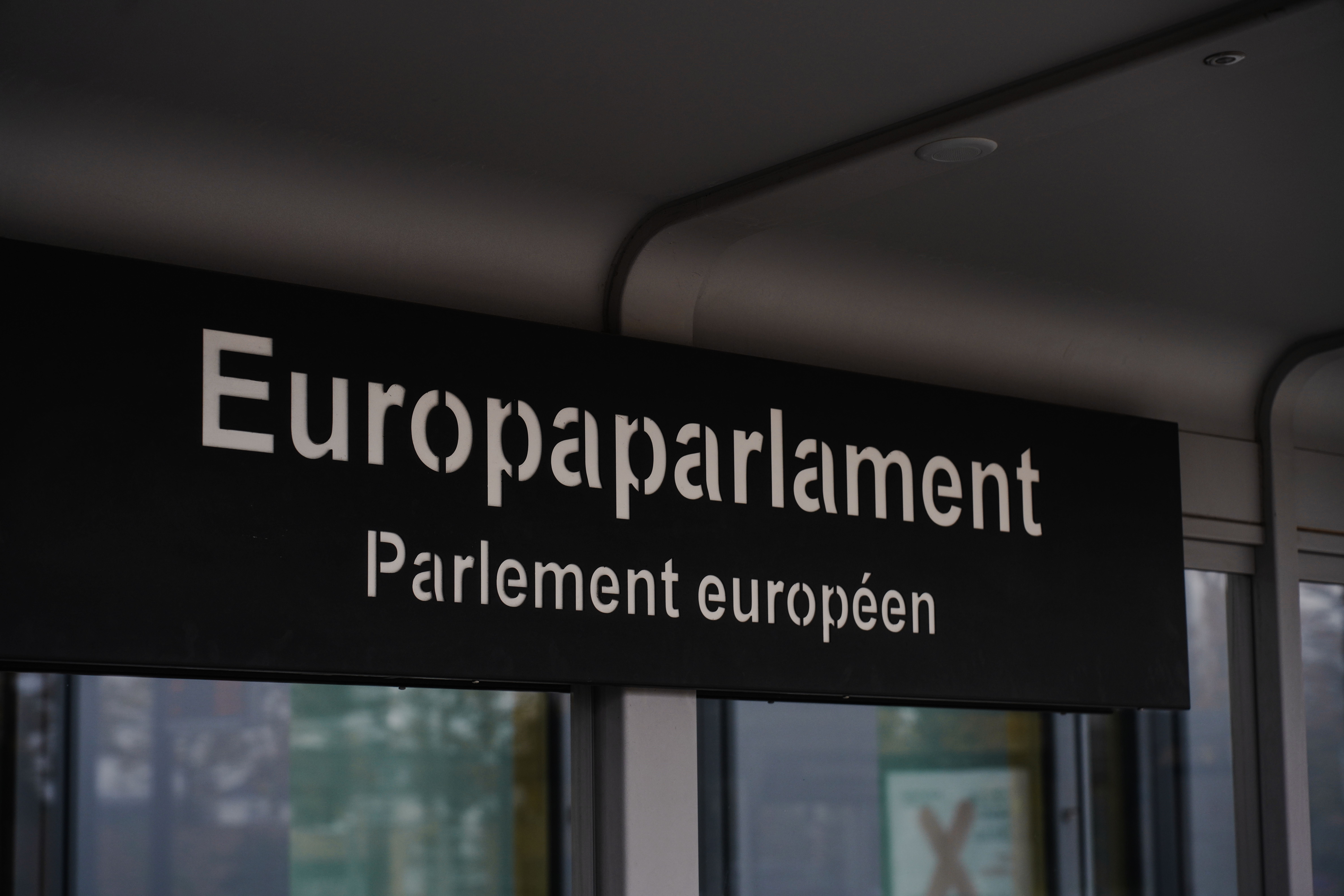Ronny Marx is 77, Olivia Baker is 16. They don’t know each other and have never met. For queer.lu, I asked them to confide in me their expectations, fears, desires and needs concerning the LGBTIQ+ community. We meet two generations whose convictions are not so far apart.
In the name of diversity
At first glance, she looks like an ordinary teenager.
One of many. She even seems a little shy, Olivia Baker. But behind this ordinary girl exterior lies a young student with strong convictions and concrete expectations.
For this American from Seattle, whose family moved to Luxembourg when she was just eleven, the LGBTIQ+ community is above all a safe community where she can feel at ease. A group of people with whom she can communicate and exchange views on different aspects of the community and our society in general.
“I’m very grateful to have this privilege and to be able to connect with other people like me. People who are like me. “On the front line, it’s respect and support she’s looking for. “But that’s what I also expect from my family and friends. I believe that despite age, everyone should be treated with kindness and respect, no matter their decisions and choices.”
She lives and breathes this open-mindedness at her school, ISL (International School of Luxembourg), where she is a member of the DEIJ committee, which stands for Diversity, Equity, Inclusion and Justice. “We try to spread and solidify diversity in all the classes at my school. The committee works constantly and very hard to make my school a better and more welcoming place.”
Her involvement is certainly no accident, but to the open-mindedness her family has accustomed her to from an early age. “My 20-year-old brother is gay, so yeah, probably it’s been easier for me to talk about my sexual orientation with my parents,” she admits with a laugh. “My parents have always had this mentality of saying, you can love whoever you want and so it kind of shocked me when I realized that not everyone grew up with such a mentality.”
Despite all this, the young girl feels very privileged to live in today’s society, and it seems right to her not to forget what the LGBTIQ+ community has fought for in the past. “I have rights and I’m very grateful for all the people who have fought for a long time for these rights to be accepted and to exist.” That’s not to say she thinks there’s no longer a battle to be fought.
“On the contrary, just because we have rights doesn’t mean we shouldn’t fight for those who don’t yet have the same rights. I remember I was in kindergarten when gay marriage was legalized in Seattle, so it came as a bit of a shock when I realized a few weeks ago that Greece had just obtained this right.” She finds it astonishing that only 37 countries in the world have legalized gay marriage to date.
Olivia has been, as she says herself, literally immersed in the LGBTIQ+ community all her life. She just hopes that the community will continue to make efforts to ensure that our voices are heard. “My main role model is my brother. He’s also part of the LGBTIQ+ world. He inspires me with his ability to grow and become the person he wants to be. Although he has gone through many difficulties to be accepted in the wider community. He made me realize that my sexuality doesn’t define who I am. It’s a part of who I am. Just as everyone is free to reveal their sexuality or not.”
The young student remains convinced that society in general can do more to respect the rights of LGBTIQ+ people. Nor is she one to hope for change without getting involved, especially when it comes to issues that affect teenagers in particular, or that affect her personally.
“I think the LGBTIQ+ community is becoming more visible and growing every day. I think improvements can be made by teaching and raising awareness from an early age against homophobia for example, but also against all other forms of discrimination, which is what I try to do within my committee at school, but also with the support of the Rainbow Center.”
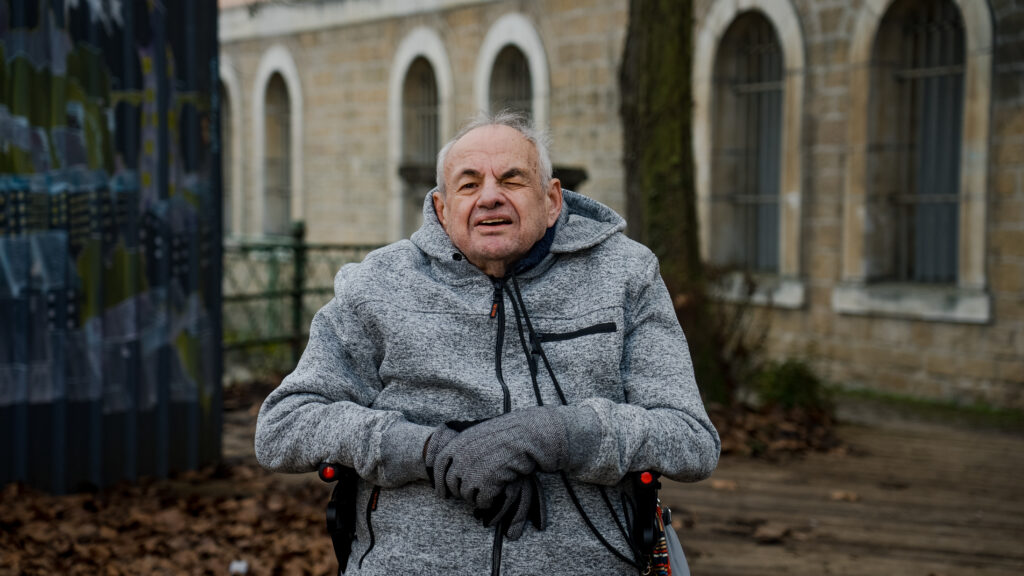
The fight against loneliness
“I’ve always been gay, you know,” reveals Ronny Marx, taking a sip of Martini. He even proudly adds, not without a sense of humor, that he had his first sexual encounter at the age of twelve. “There, you know everything,” he confides, crunching the peanuts the waiter has just brought us. Yet the former hotel receptionist wasn’t always so open and forthright. “When I was young, I was very, very shy,” he recalls. “I hardly spoke at all. I’ve only been outgoing for a little over a year. That’s when I moved into a retirement home after a bout of depression. Solitude doesn’t really suit me!”
Ronny Marx is part of this generation of LGBTIQ+ people who unfortunately haven’t found the right shoe, who don’t have children and who suddenly arrive at an age where youthism is valued more than seniors, especially in an LGBTIQ+ community that also has a very superficial side, based solely on appearance and aesthetics. Loneliness among seniors, and particularly among LGBTIQ+ seniors, is unfortunately a topical issue that French and German associations have been observing for almost fifteen years. In addition to the problems of exclusion, LGBTIQ+ seniors can also be victims of social discrimination.
“I don’t feel excluded from the LGBTIQ+ community at all,” says Ronny. “On the contrary. The Rainbow Center regularly organizes events that interest me and where I meet people.” Proudly, he lets me know that he’s even part of the Golden Gays, a social group for queer people over 50 that promotes, among other things, exchange between LGBTIQ+ seniors while planning activities that suit them. “I even go out to Letz Boys! But on weekends, it’s a bit too crowded for me.” Ronny is a late bloomer. “When I was young, I didn’t have many friends,” he confides, before changing the subject, as if he wanted to divert attention. “I have two lovers at the moment,” he laughs. “Young ones, thirtysomethings, and I can tell you we have a lot of fun together.” He can’t help but laugh.
After a sip of Martini, he continues. “At the retirement home, I’ve made a lot of friends. We have karaoke nights and we all sing together.”
When I ask him what he, at 77, expects from the LGBTIQ+ community, Ronny needs no time to think before answering. His answer is loud and clear: social contact. “When I leave the Rainbow Center, for example, I’m recharged with energy. I feel good, I’m happy.”
Taking to the barricades, demanding rights, demanding change… “No, it’s not in my nature. I’m too shy.” Ronny fights his battle alone. The fight against loneliness. The subject comes up again and again in discussion. Hard as it may be for him to admit, there’s a fear, a phobia, that keeps coming back to the heart of the matter: that of one day finding himself all alone. At 77, Ronny rightly claims the sole right to consider only his own interests. Perhaps because he had put them aside for too long.
Ronny Marx never came out, and he never spoke about his sexual orientation to anyone for virtually his entire life. “Now I’m telling everyone! Today’s society is more open, more free. When I was young, I kept quiet. My mother knew, but we didn’t talk about it. All she said to me one day was: “Make your own life, my son, but you haven’t chosen the easiest path.”
Today, the bubbly senior is far from being on the bangs of the LGBTIQ+ community – on the contrary. He participates, he takes an interest, he enjoys himself as he can, when he wants and without owing anything to anyone. He finally feels free! “I feel safe in the society we live in. The new generation is much more open and tolerant. Before, it wasn’t like that. Tolerance didn’t exist in Luxembourg.”
Behind these somewhat harsh words lies a deep admiration for a pillar of the LGBTIQ+ community in Luxembourg, particularly in terms of visibility, former Prime Minister Xavier Bettel.
“Bettel is truly a role model for me. He never hid his homosexuality. He always made it known who he was. And when he got married, it was accepted by a lot of people. That’s just fantastic. I admire the fact that he also defends our rights in countries where homosexuality is forbidden. Hats off to him! Despite the fact that we’re a small country, I think Luxembourg is way ahead of its time. Yes, there are certainly still battles to be fought, against intolerance, but I remain convinced that we are particularly well off in Luxembourg when it comes to our rights.”
Photos: Tessy Troes
Article translated from French

